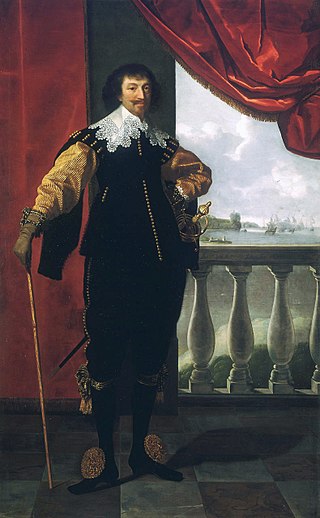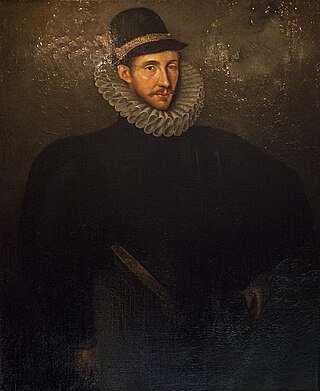Related Research Articles

Kevin Warwick is an English engineer and Deputy Vice-Chancellor (Research) at Coventry University. He is known for his studies on direct interfaces between computer systems and the human nervous system, and has also done research concerning robotics.

The House of York was a cadet branch of the English royal House of Plantagenet. Three of its members became kings of England in the late 15th century. The House of York descended in the male line from Edmund of Langley, 1st Duke of York, the fourth surviving son of Edward III. In time, it also represented Edward III's senior line, when an heir of York married the heiress-descendant of Lionel, Duke of Clarence, Edward III's second surviving son. It is based on these descents that they claimed the English crown. Compared with its rival, the House of Lancaster, it had a superior claim to the throne of England according to cognatic primogeniture, but an inferior claim according to agnatic primogeniture. The reign of this dynasty ended with the death of Richard III of England at the Battle of Bosworth Field in 1485. It became extinct in the male line with the death of Edward Plantagenet, 17th Earl of Warwick, in 1499.
Sir Philip Warwick, English writer and politician, born in Westminster, was the son of Thomas Warwick, or Warrick, a musician.

This article traces the history of the English penny from 1066 to 1154.

Robert Rich, 2nd Earl of Warwick KB, PC was an English naval officer, politician and peer who commanded the Parliamentarian navy during the Wars of the Three Kingdoms. A Puritan, he was also lord of the Manor of Hunningham.

Sir John Valentine Butterfill was a British Conservative politician and businessman who served as Member of Parliament (MP) for Bournemouth West from 1983 until he stood down at the 2010 general election.

Fulke Greville, 1st Baron Brooke was an Elizabethan poet, dramatist, and statesman who served in the House of Commons at various times between 1581 and 1621, when he was raised to the peerage.

Stephen Richard Lyster Clark is an English philosopher and professor emeritus of philosophy at the University of Liverpool. Clark specialises in the philosophy of religion and animal rights, writing from a philosophical position that might broadly be described as Christian Platonist. He is the author of twenty books, including The Moral Status of Animals (1977), The Nature of the Beast (1982), Animals and Their Moral Standing (1997), G.K. Chesterton (2006), Philosophical Futures (2011), and Ancient Mediterranean Philosophy (2012), as well as 77 scholarly articles, and chapters in another 109 books. He is a former editor-in-chief of the Journal of Applied Philosophy (1990–2001).
Sir Hrothgar John Habakkuk was a British economic historian.

Quassim Cassam, is professor of philosophy at the University of Warwick. He writes on self-knowledge, perception, epistemic vices and topics in Kantian epistemology. As blurbed for his book, Vices of the Mind (2019), Cassam defines epistemic vice as "character traits, attitudes or thinking styles that prevent us from gaining, keeping or sharing knowledge".
The 2010 cash for influence scandal was a political scandal in the United Kingdom. It was brought to public and widespread media attention by a March 2010 documentary by Dispatches in which a journalistic sting operation recorded and revealed members of parliament and the lords offering to work for a fictitious political lobbying firm for fees of £3,000 to £5,000 per day.
Malcolm Hughes was a British constructive artist.

In the philosophy of mind, collective intentionality characterizes the intentionality that occurs when two or more individuals undertake a task together. Examples include two individuals carrying a heavy table up a flight of stairs or dancing a tango.
Thomas Coxe was an English physician. He studied at Emmanuel College, Cambridge, graduating with a BA in 1635 and an MA in 1638. He was among the initial fellows of the Royal Society, but ran into money difficulties in old age.
Mark Edmund Smith, is a British physicist, academic, and academic administrator. He specialises in nuclear magnetic resonance (NMR) and materials physics. Since October 2019, he has been the President and Vice-Chancellor of University of Southampton, having previously held the office of Vice-Chancellor of Lancaster University, and Professor of Solid State NMR in its Department of Chemistry since 2012. He has previously lectured at the University of Kent and the University of Warwick.

Elections to Southampton City Council took place on Thursday 2 May 2019, alongside other local elections across the country. The Labour Party held a narrow majority of two at the last election and the seats contested in this election were last contested in 2015. Labour were defending 6 seats, the Conservatives were defending 8, whilst independent councillors, who held two seats, were not standing re-elections. Following a by-election in the Coxford ward where Labour gained the seat formerly held by an independent.
Andrew Collier was Professor of Philosophy at the University of Southampton. He is known for his work on objectivity in the social sciences.
The Department of Philosophy is an academic division in the Faculty of Social Sciences at the University of Warwick. It is known for its strengths in Continental philosophy.
Christoph Hoerl is a German philosopher and Professor of Philosophy at the University of Warwick where he is also Deputy Head of Department of Philosophy. He is known for his works on philosophy of mind and philosophy of psychology.
Jack Butterfill is an English professional footballer who plays as a forward for EFL League One club Barnsley.
References
- ↑ "Stephen A. Butterfill". Google Scholar Citations.